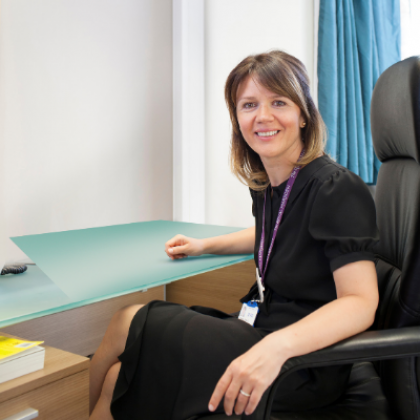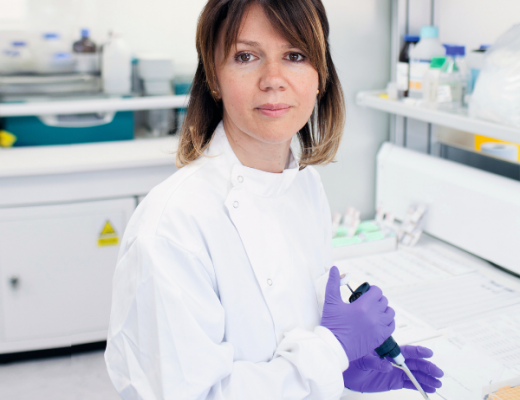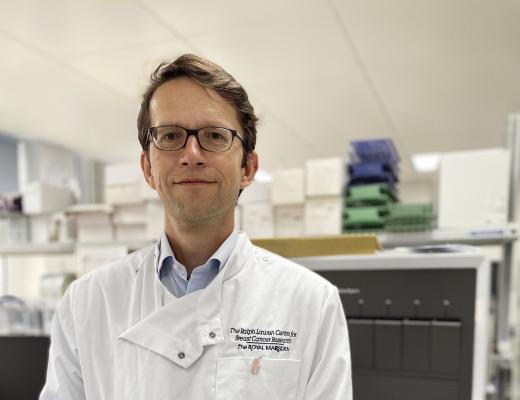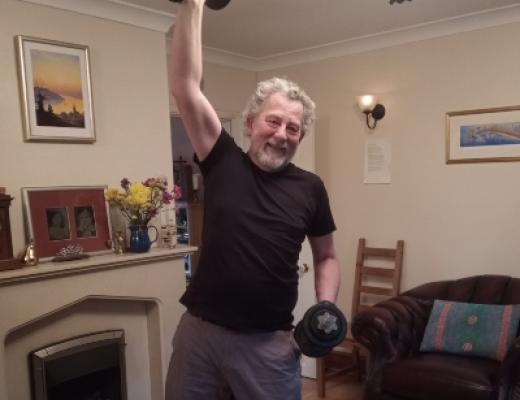International Women’s Day: Dr Samra Turajlic
This International Women’s Day, we are highlighting the important work of one of our leading consultants, Dr Samra Turajlic.
Dr Samra Turajlic has been at The Royal Marsden since 2015 and is a Consultant Medical Oncologist in The Royal Marsden’s Skin and Urology units treating patients with melanoma and kidney cancer. As a clinician scientist her other role is as a Research Group Leader at the Francis Crick Institute.

Leading on clinical studies
Dr Turajlic's main research goal is to improve understanding of the biology of kidney cancer and melanoma and the reasons for the success or failure of different treatments. The combined clinical and research team use large scale translational studies to unpick how cancers evolve over time to escape treatment and become lethal. Her research interests are emerging therapies that harness the immune system and she is the chief investigator of a novel cell therapy for melanoma patients.
CAPTURE: Understanding COVID-19 in cancer patients
The COVID-19 pandemic, and its effect on cancer patients has presented an urgent new challenge. In 2020, Dr Samra Turajlic and the team on Renal and Skin units rapidly launched a large-scale study to understand if cancer patients’ immune system reacts to COVID-19 infection and vaccine and how this is impacted by the type of cancer or the type of treatment that the patient receives.
The CAPTURE study, partially funded by The Royal Marsden Cancer Charity, has recruited more than 900 patients who either had COVID-19 or received a COVID-19 vaccine. The study recruited patients independent of cancer type or cancer treatment. Across four publications, the team has studied functional immune responses of cancer patients, including responses against SARS-CoV-2 variants such as delta and omicron.
The main findings across the studies include:
- Most patients with solid cancers have immune responses after COVID-19 or vaccination that are comparable to individuals without cancer of similar age.
- Patients with blood cancer have impaired immune responses after COVID-19 or vaccination dependent on the type of cancer and the type of treatment. Specifically, B cell-depleting therapies (e.g. anti-CD20 antibodies) abrogates antibody responses.
- T cell responses are observed in patients that don’t have antibody responses and they may partially protect patients from severe symptoms.
- An additional third vaccine doses, can boost antibody responses in patients that had no response after two vaccine doses, and it increases antibodies specific for variants of concern.
Currently the team is investigating if a 4th vaccine dose can increase antibody and T cell responses in patients with blood cancer that had low or undetectable responses after three vaccine doses.
This understanding helps us to calibrate our measures to achieve the best possible cancer outcomes and reduce the risk of COVID-19, in some cases, allow clinicians to confidently resume treatment, whilst also offering important insights into the COVID vaccine response in cancer populations. The knowledge has broader implications for understanding COVID-19 and the risk of other infections in patients with cancer- something that is poorly understood at present.
This past year has been incredibly challenging on many fronts and I am incredibly proud of the effort of our teams- both clinical and lab, and especially the many women across amongst them who have been a shining example of courage and inspiration.
- Dr Samra Turajlic
Your support helps fund life saving research and breakthroughs in cancer treatment.
More like this
Discover more inspiring stories like this on our blog.



